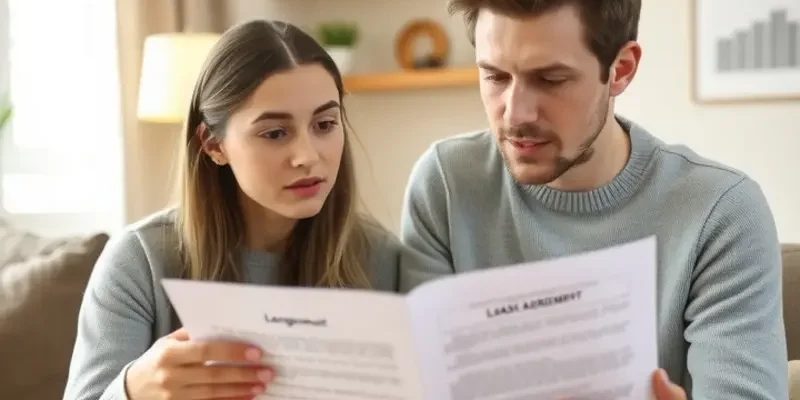Renting a home can be a thrilling yet nerve-wracking experience, especially for young professionals, students, first-time renters, couples, and families. While the excitement of a new space often overshadows the responsibilities that come with it, knowing your renter’s rights—particularly regarding maintenance—is crucial for a smooth living experience. From reporting issues like leaks or broken appliances to understanding the extent of your landlord’s obligations, being informed can save you time, money, and stress. This guide aims to demystify renter’s rights concerning maintenance, offering practical advice tailored to your unique situation. By understanding these rights, you can foster a better relationship with your landlord and ensure your living space remains comfortable and safe.
Know Your Rights: Understanding Landlord Responsibilities

As a renter, having a clear understanding of your landlord’s responsibilities is essential to ensure your rental space is habitable and well-maintained. Landlords are legally obliged to keep rental properties safe and livable. This means addressing necessary repairs in a timely manner, maintaining common areas, and ensuring all essential services like plumbing, heating, and electric systems are in good working order.
One of the primary rights renters possess is the right to habitability, which ensures a safe and sanitary living environment. Should any part of your apartment violate health and safety codes, it falls under the landlord’s duty to correct these issues promptly. Common problems related to habitability include plumbing issues, mold, rodent infestations, or broken heating systems.
When reporting a repair need, effective communication with your landlord is rooted in promptness and clarity. Submit repair requests in writing, whether through email, a formal letter, or any communication platform your landlord prefers. Clearly describe the problem and include photos if possible. This documentation serves as a record and can be pivotal if disputes arise later.
Landlords are expected to respond within a reasonable timeframe to repair requests, though what qualifies as “reasonable” varies by local laws. Urgent issues affecting health or safety, such as a lack of heating in winter, generally warrant faster responses compared to minor inconveniences. If your landlord fails to address significant issues, familiarize yourself with your local tenant rights; certain jurisdictions may allow you to withhold rent or involve municipal housing authorities if repairs are not undertaken.
Understanding the importance of maintaining open lines of communication is key. While landlords are responsible for repairs, as a tenant, keeping them informed of issues is vital. This ensures both parties are aware of their respective responsibilities and expectations.
Tenants facing unresponsive landlords have recourse. In situations where repair neglect persists, consider exploring options for mediation or legal action. Many municipalities have tenant advocacy groups ready to assist renters in exercising their rights effectively.
Maintaining a strong grasp on your rights as a tenant complements a proactive approach to communication and documentation. By staying informed and organized, you help ensure your living environment remains as stress-free and comfortable as possible.
You can explore further resources on rental safety and best practices by visiting Apartment Radon Safety.
Taking Action: Navigating Maintenance Requests

As a renter, it’s vital to ensure your living environment is well-maintained. When maintenance issues arise, effective communication with your landlord can make all the difference. Understanding your rights and responsibilities is the first step in navigating these situations.
When you encounter a maintenance issue, the first step is to inform your landlord as soon as possible. This can be done via email or through an online maintenance portal if available. Written communication not only provides a record of your request but also establishes a timeline. Be specific about the issue, its location within the property, and any immediate concerns; for instance, if a leaking pipe is causing water damage.
Documenting maintenance issues is crucial. Take photographs or videos to support your request. This visual evidence can be invaluable if any disputes arise. In some cases, landlords may question the severity or validity of a problem, and having a detailed account can clarify the issue. If you are notified that repairs will occur, record this communication along with any agreed-upon dates and times.
If the issue is not addressed promptly, follow up with a reminder. A friendly yet firm tone can emphasize your urgency without creating tension. Keep all correspondence organized and stored safely, as you may need to reference these in the future.
When repairs are not completed within a reasonable timeframe, you’ll need to escalate the matter. Refer to your lease agreement, which often outlines maintenance response times and procedures for unresolved issues. If your lease lacks clarity, you might consult local tenant rights organizations for guidance on standard practices in your area. Many of these agencies have resources, such as templates for escalation letters.
It’s important to approach the situation professionally if you need to take further action. Craft a formal letter addressed to your landlord, summarizing previous communications, documented evidence, and the expected repair timeline from your lease agreement. State clearly that if the issues remain unaddressed, you might pursue other options, including contacting local housing authorities or considering legal advice.
Navigating maintenance requests can be a challenge, but maintaining a proactive and organized approach can often lead to favorable outcomes. For more advice on managing your rental living experience, consider exploring tips on resolving rental billing errors, which can provide further insights into handling landlord communications effectively.
Final words
Being aware of your renter’s rights related to maintenance allows you to take proactive steps in managing your living situation effectively. Knowing what to expect from your landlord, from timely repairs to maintaining a habitability standard, empowers you as a renter. If you face unmet responsibilities, don’t hesitate to document your concerns clearly and reach out for assistance. By understanding and asserting your rights, you’re not just ensuring a comfortable living space—you’re fostering a more respectful and responsive relationship with your landlord. Equip yourself with the knowledge to navigate your rental experience confidently!









